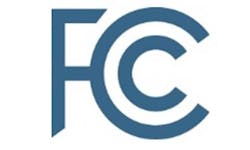As expected, commissioners at the Federal Communications Commission (FCC) voted 3-2 in support of Commission Chairman Thomas Wheeler's latest strategy for imposing Net Neutrality safeguards on broadband service provision. But the details of the strategy remain a mystery, as the FCC doesn't expect to release the plan today.
The vote on the Open Internet Order was along party lines, which Democrats Wheeler, Mignon Clyburn, and Jessica Rosenworcel overcoming the dissent of Republican commissioners Ajit Pai and Michael O'Rielly. The two Republicans had called for Commissioner Wheeler to release the final plan and delay the FCC vote to give the public a chance to read it and comment. That request obviously was denied.
Wheeler released a fact sheet February 4 that described in general terms what he has in mind (see "FCC targets Title II regulation of Internet services with forbearances for Net Neutralitydescension"). However, press reports have suggested that the formal plan has been tweaked in recent days.
The order reclassifies Internet service as a telecommunications service, to be regulated under some elements of Section 706 of the Telecommunications Act of 1996, a.k.a., Title II. In a statement issued after the vote, Wheeler described the three basic aims of the ensuing FCC actions under the order along the same lines as in the fact sheet:
- ban paid prioritization
- ban blocking
- ban throttling.
The order also contains a "general conduct rule" that will be used to determine whether an Internet service providers (ISP) is on the wrong side of the Net Neutrality line as technologies and services evolve. The Net Neutrality rules would apply equally to fixed and mobile broadband services and service providers.
In presentations before the vote, the Democrats on the Commission asserted the new regulations were necessary to ensure that ISPs could not tilt the competitive playing field unfairly among content and other service providers. The Republicans asserted the new policy addresses a problem that doesn't exist and opens the door to FCC regulation of the rates ISPs charge for their services as well as additional taxes – a claim Chairman Wheeler heatedly denied before the vote.
"We also ensure that network operators continue to have the incentives they need to invest in their networks," Wheeler repeated in his post-vote statement. "Let me be clear, the FCC will not impose 'utility style' regulation. We forbear from sections of Title II that pose a meaningful threat to network investment, and over 700 provisions of the FCC's rules. That means no rate regulation, no filing of tariffs, and no network unbundling.
"During the 22 years that wireless voice has been regulated under a light-touch Title II like we propose today, there has never been concern about the ability of wireless companies to price competitively, flexibly, or quickly, or their ability to achieve a return on their investment," he added.
The order is expected to be challenged in court. Congress may also consider legislation that would contravene the FCC's actions.
For more information on FTTx equipment and suppliers, visit the Lightwave Buyer's Guide.

Stephen Hardy | Editorial Director and Associate Publisher
Stephen Hardy has covered fiber optics for more than 15 years, and communications and technology for more than 30 years. He is responsible for establishing and executing Lightwave's editorial strategy across its digital magazine, website, newsletters, research and other information products. He has won multiple awards for his writing.
Contact Stephen to discuss:
- Contributing editorial material to the Web site or digital magazine
- The direction of a digital magazine issue, staff-written article, or event
- Lightwave editorial attendance at industry events
- Arranging a visit to Lightwave's offices
- Coverage of announcements
- General questions of an editorial nature
